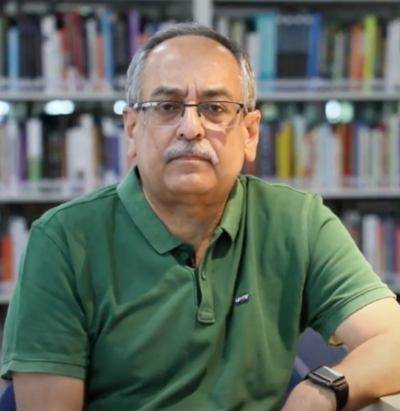Physiology
Semester: Spring 2024 | BIO-3423/ BIO-6423
Course Instructor– Dr Anurag Agrawal
Overview: When seen from the lens of physiology, the human body is a biological machine evolved to carry out the processes of life. Death and disease are natural consequences of the failure of such processes. The course examined life, death, and in-between disease states from a physiological lens, outlining the core processes of respiration, circulation, metabolism, and disposal, studied.
Learning Outcomes:
- General understanding of critical human physiology, failure of which leads to immediate death
- Respiration
- Circulation
- General understanding of partial failures compatible with life, described as a disease
- The idea behind commonly used tools to diagnose or quantify health and disease
- Genomics and other data-intensive aspects that will be the core of future digital health
- Use of simple medical devices
- ECG
- Lung function testing
- Wearables for general health
- The idea of digital twins encompassing genomic data overlaid with lifetime biomedical data

Dean, BioSciences and Health Research,
Trivedi School of Biosciences, Ashoka University
Head, Koita Center for Digital Health at Ashoka
MBBS, PhD, Diplomate American Board (Int Med, Pulm Dis, Crit Care)
Digitalization and Privacy
Semester: Spring 2024 | CS-2384-1
Course Instructor– Professor Subhasis Banerjee
Overview: India is arguably the biggest deployer of Digital Public Goods (DPG, digital systems in public life) with large public service applications (in-use or contemplated) like national identity, phone-based payment systems, electronic voting, national-level health registry, national population and voter registries, public credit registry, income and other tax registries, face recognition based access control at airports and other facilities, Bluetooth based contact tracing and a national intelligence grid. It is undeniable that the DPGs have had a huge impact on public life in the last decade.
However, these systems also come with risks of exclusion increased cost of transactions, and increased risks of privacy violations, especially for a population in which digital literacy is low. The privacy judgement of the Supreme Court of India read all such risks into Articles 14, 19 and 21 of the Indian constitution and broadly classified them as `privacy’. However, the technical and operational standards for such privacy protection are not yet well developed. This has led to constant tension between the state and the civil society and privacy activists resulting in several constitutional cases in the Supreme Court and various High Courts. The possibilities of inferential privacy and other human rights violations with modern machine learning — whether deliberate or inadvertent — or unfair and discriminatory processing of data, compound the problem.
In this course, we unpacked the privacy and other human rights requirements in such applications from both legal and technical points of view. We investigated the possibilities of early alignment of the two and examine if it is possible to outline the necessary and sufficient conditions for privacy protection, as envisaged by the privacy judgement of the Supreme Court of India. We reviewed the privacy enhancement techniques in computer science, ranging from encryption and applied cryptography, electronic voting, database and network security, trusted execution environments, blockchains, anonymization and other data minimisation techniques, and evaluate their suitability and efficacy for privacy protection. In the final part of the course we investigated the architectural possibilities for privacy protection – from both legal and technical perspectives – that may help not only in design but also in assessing vulnerabilities and omissions.

Head of the Department & Professor of Computer Science, Ashoka University
Ph.D. Indian Institute of Science






